Plastic Out, Kelp In: Notpla’s Seaweed Solution Takes Over Takeaways
With £20 million in fresh funding and a growing list of global partners, UK-based Notpla is betting on seaweed to clean up the food packaging industry—one compostable box at a time.
16 June 2025
Share this exclusive content from Saladplate
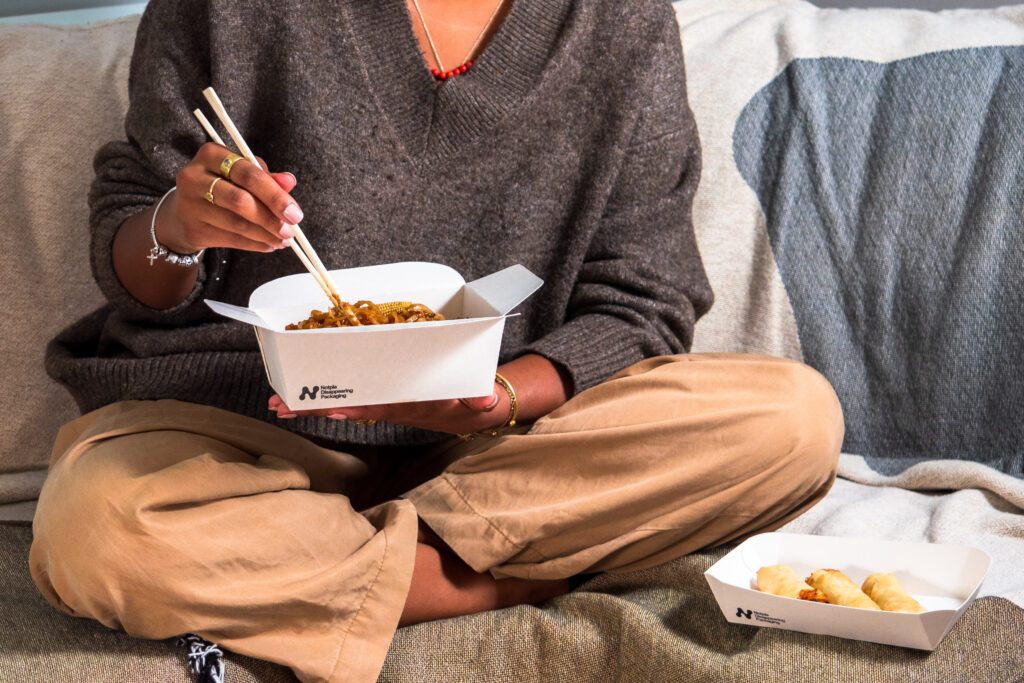
Notpla aims to replace more than 100 million plastic items per year by 2026 and one billion by 2030 | Photo Credit: Notpla
In a world drowning in single-use plastic, a small startup from the UK is harnessing the power of seaweed to transform the way we package food. Founded in 2014 by Pierre Paslier and Rodrigo Garcia Gonzalez, Notpla—short for “Not Plastic”—is on a mission to eliminate plastic waste with packaging that doesn’t pollute. Made from seaweed and other natural materials, Notpla’s products are fully biodegradable and home-compostable, breaking down within weeks without leaving behind harmful residues.
Their vision is bold: to replace more than 100 million plastic items per year by 2026 and one billion by 2030. Since its inception, Notpla has already replaced over 16 million plastic units across Europe, and its momentum is growing. With governments tightening regulations on single-use plastics and businesses scrambling to meet sustainability targets, Notpla’s nature-inspired solutions arrive at a crucial time.
The company’s recent £20 million Series A+ investment round marks a significant milestone in its journey. The funding, led by Finnish asset manager United Bankers, also attracted impact-driven investors such as Temasek Trust’s Catalytic Capital for Climate & Health, the Schmidt Family Foundation, and long-time backers Horizons Ventures and Astanor Ventures. With this capital, Notpla plans to scale up manufacturing, accelerate its entry into the North American market, and continue developing new seaweed-based packaging innovations that meet the demands of global foodservice and consumer goods sectors.
Unlike many green packaging alternatives that still contain hidden microplastics or rely on industrial composting infrastructure, Notpla’s products are designed to disappear naturally. Their most well-known innovation, the Ooho pod, is an edible liquid sachet that gained attention at the London Marathon. Its product range also includes: takeaway food containers that decompose in four to six weeks, seaweed films used for homecare products, sauces and detergents; compostable pipettes for single-dose olive oils; rigid cutlery made from seaweed; and even seaweed paper that reduces reliance on wood pulp.
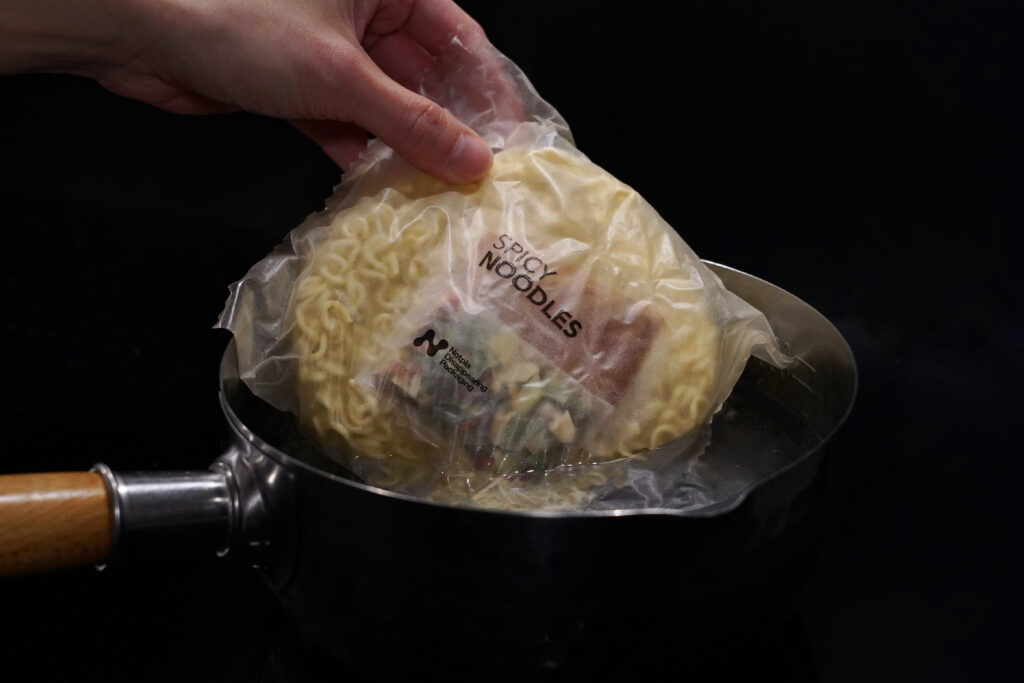
Notpla Water Soluble Film Pack | Photo Credit: Notpla
What truly sets Notpla apart is its material.
In 2023, the company’s food container coating became the first packaging material to be officially recognised as plastic-free under the EU Single-Use Plastics Directive by the Dutch government. This recognition came after rigorous testing and sets Notpla’s coating apart from many competitors that only claim compostability but fail under regulatory scrutiny.
The brand has also made serious inroads through strategic partnerships. Its compostable food containers have been used by global names like Just Eat Takeaway.com, Compass Group, and Decathlon. At venues such as the O2 Arena, Allianz Stadium, and Tottenham Hotspur Stadium, Notpla’s packaging is already replacing plastic at scale. In a pilot with Just Eat, over 30,000 seaweed-lined takeaway boxes were distributed and tested. Feedback from food vendors confirmed that the packaging performed as well as its plastic-lined counterparts, withstanding heat, grease, and sauces, while offering a clear environmental advantage. (Source: Green Queen 2022)
According to Paslier, seaweed offers a uniquely scalable solution for sustainable packaging. “Seaweed doesn’t compete with food crops, doesn’t need fresh water or fertiliser, and grows up to a metre per day,” he explained. “It’s one of nature’s most renewable resources—and an ideal raw material for replacing single-use plastic”. It also absorbs carbon dioxide as it grows, helping to combat climate change and reduce ocean acidification.
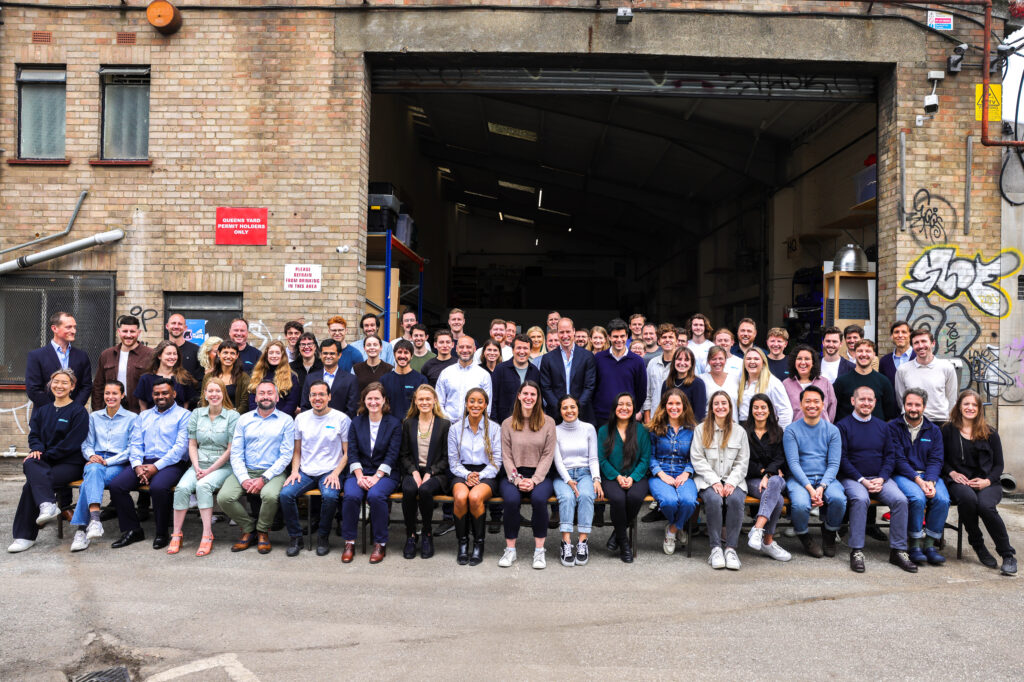
Team Notpla | Photo Credit: Notpla
Looking ahead, Notpla is gearing up to scale production dramatically. With demand rising and its North American expansion underway, the company is positioning itself as a leading supplier for businesses that want to go plastic-free without compromising on functionality. Its long-term goal is nothing short of transformative: to remove one billion single-use plastic items from circulation by the end of the decade.
As the food industry searches for sustainable solutions that are practical, scalable, and regulation-ready, Notpla is showing that innovation doesn’t always need to come from synthetic polymers or high-tech labs. Sometimes, the answer grows in the ocean.
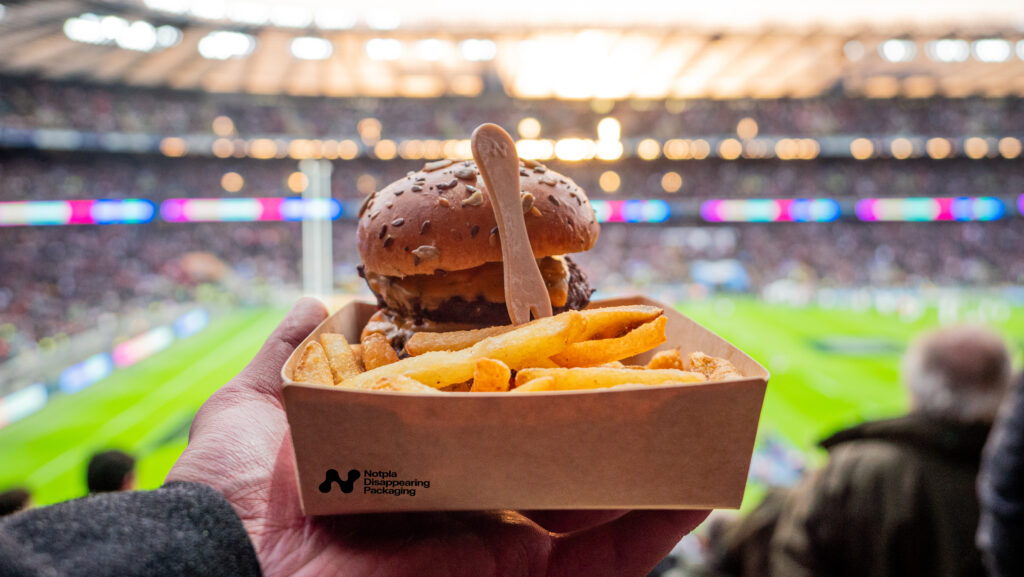
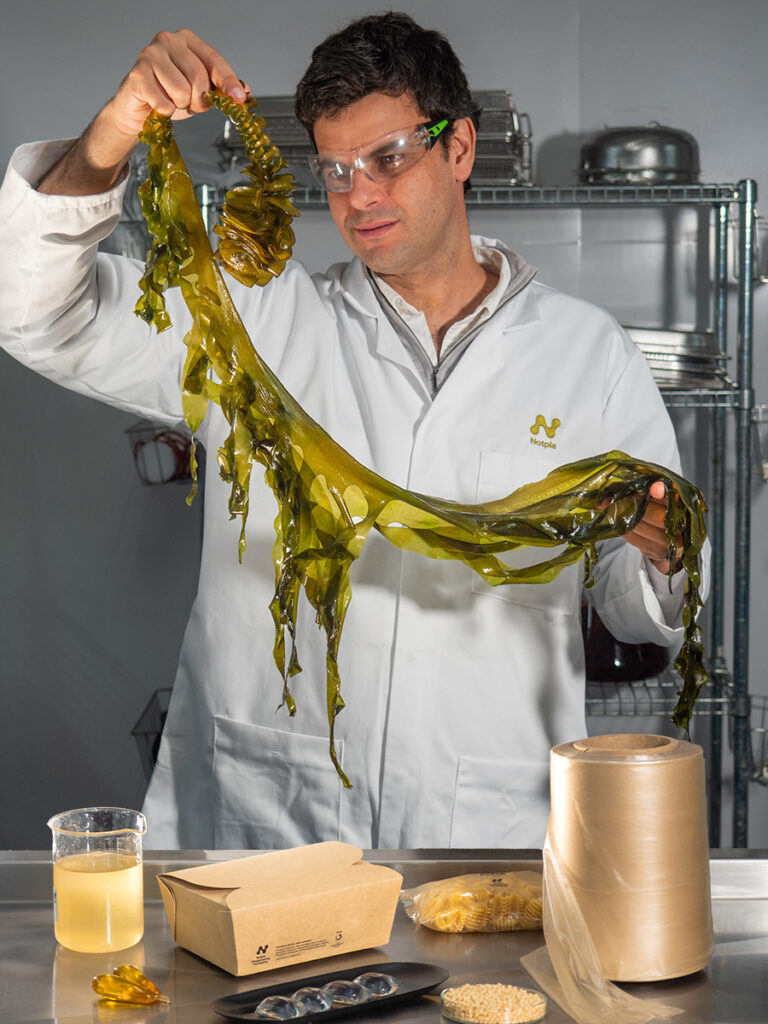
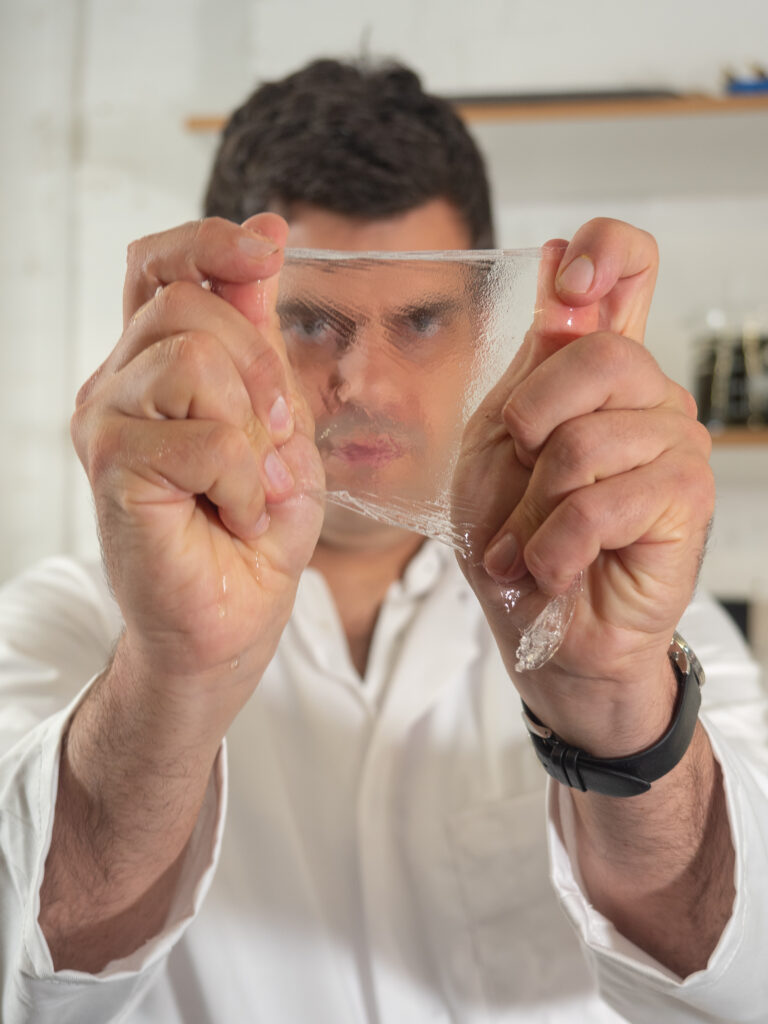
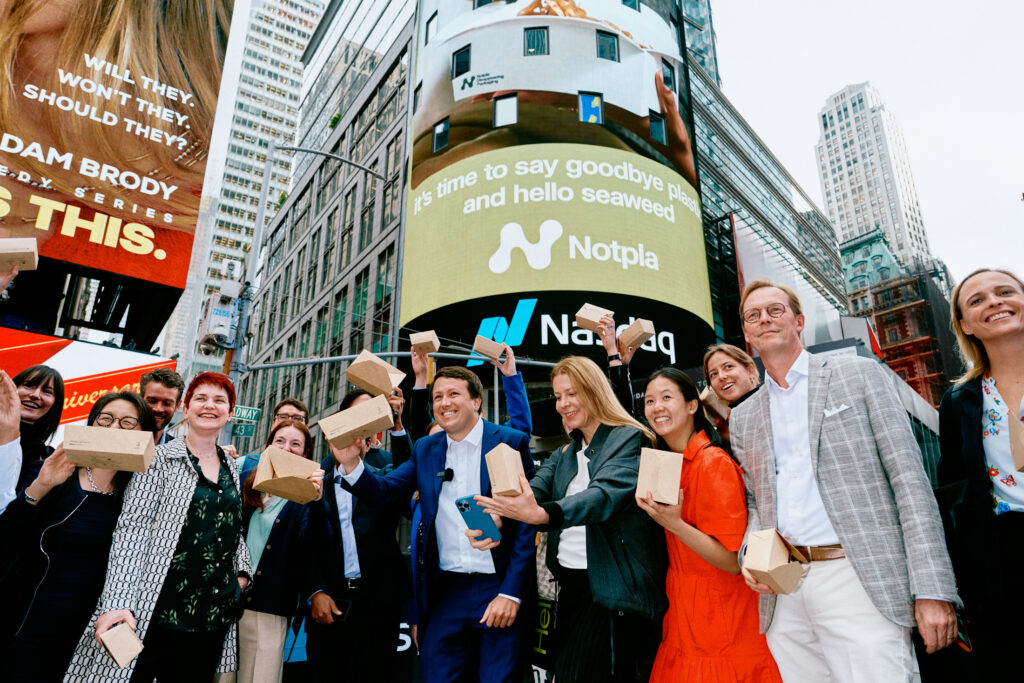
Photo credit: Notpla
Author: Hannah Tiong
Seasoned content designer and strategist, Hannah Tiong leverages 12 years in lifestyle journalism to craft impactful narratives. With bylines in The Business Times, Time Out, Epicure, and beyond, she brings a sharp editorial eye and a deep understanding of the F&B industry.



